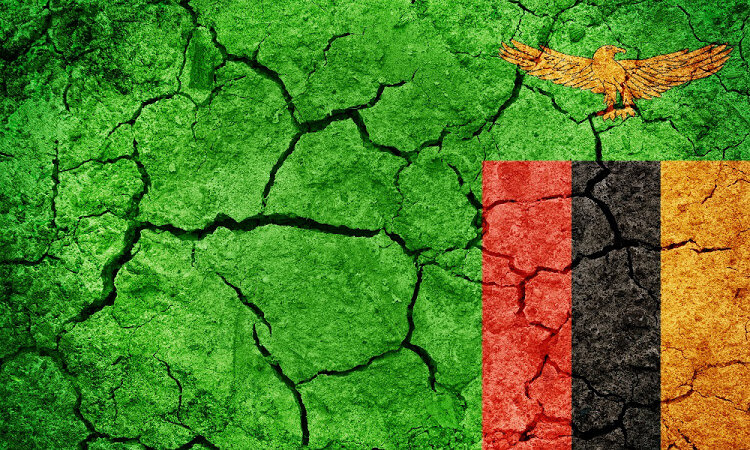SHAMELESS OVERREACH BY THE GOVERNMENT IS HAVING REAL-WORLD EFFECTS ON BUSINESS AND INVESTMENT
Zambia has a long tradition of the rule of law, a clear separation of powers and an effective and responsible judiciary. So it is worrying that it is slipping down the World Justice Project rule of law index, with worsening scores in the categories of government powers, fundamental rights, absence of corruption, criminal justice and open government.
So too in the Economist Intelligence Unit’s 2019 democracy index, with authors citing particular concerns that “increased restrictions on the electoral process in […] Zambia reflected democratic backsliding and a retreat from political pluralism”.
The breakdown of the rule of law has economic consequences. Zambia ranked in the bottom 10 of the 76 participating jurisdictions in the world for mining investment, according to the Fraser Institute’s 2019 annual survey of mining companies, published in February 2020. The steep decline was attributed in part to regulatory inconsistencies as well as an unfavourable taxation regime.
What is going on? The rule of law is meant to safeguard a stable investment environment where investors, local or foreign, can trust that their assets won’t be affected by political whim. It also ensures that regulators and the courts remain impartial and free of political interference. The media is free to report on, criticise and challenge the government, the courts and the private and public sectors.
This seems to be breaking down in Zambia. A couple of months ago, a private TV company, Prime TV, was refused a licence by the government after it refused to air public messages about the coronavirus, saying it was still due payment by the state for past services. The matter has been referred to arbitration by the high court in Lusaka.
In another example, the ministry of mines & minerals development changed the system for export permits for minerals on June 10. The ministry will no longer accept samples submitted to the geological survey department in Lusaka. It believes exporters are submitting low-grade samples to the chemistry laboratory, undervaluing the value of mineral exports and affecting state revenues negatively. From July 1, ministry officials will be going directly to the mine sites and warehouses to collect the samples.
As permanent secretary Barnaby Mulenga said: “It is the desire of the government that the ministry gains full oversight of the mineral supply and value chain to ensure effective monitoring of mineral production and exports.”
An over-encroachment by the government or government-owned or controlled “private entities” is having a real-world negative commercial impact. We are seeing this play out now in the dispute between the Copperbelt Energy Corporation (CEC) and the state-owned Zesco and KCM. This has escalated so quickly that observers were shocked by the government’s unashamedly inappropriate intervention in expropriating CEC’s infrastructure through a statutory instrument and protecting an indebted company.
Concern is also building over the proposed “Bill 10”, which according to Zambian constitutional law expert Prof Muna Ndulo “is designed to remove parliamentary oversight over the presidency and thereby install a constitutional dictatorship. It attempts to manipulate the electoral system to ensure that the ruling party remains in power in perpetuity.”
The rule of law and separation of powers are meant to build institutional defences against the creation of absolute power. When one part of the system becomes too powerful (in this case the presidency), other bodies such as parliament or public regulators naturally defer to that power. By this the framework has not necessarily changed, but the effect of their respective powers has. Critically important and supposedly objective institutions remain independent in name only.
Energy minister Mathew Nkhuwa tried to reassure the Zambian public at a media conference on June 17 that the government was not nationalising CEC. He referred to CEC’s listing on the Lusaka Stock Exchange and the more than 4,000 Zambian retail shareholders (not to mention the 110,000 Zambian pension holders) who are invested in the private company. However, with the state-controlled Energy Regulation Board unilaterally imposing uncommercial tariffs on CEC, the minister’s comments are unlikely to calm local and international investors.
There are other reasons to keep an eye on Zambia, including concerns over a breakdown of the power supply and the country’s inability to pay for electricity imports, which could push it further towards debt distress.
The breakdown of the rule of law in neighbouring Tanzania, and the effect this has had on its economy, should also set off alarm bells for Zambians. Tanzanian President John Magufuli has declared a populist “economic war”, simultaneously cementing his own grip on power and causing investor confidence to plummet. Foreign investment has decreased by 30% in the five years since Magufuli came to power.
This article was originally published in Business Day on 24 June 2020.
Cover Image: © 123RF/CSEH LOAN


